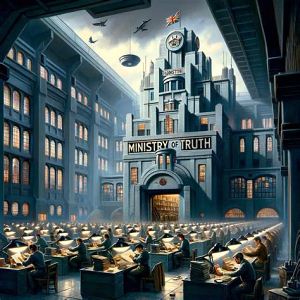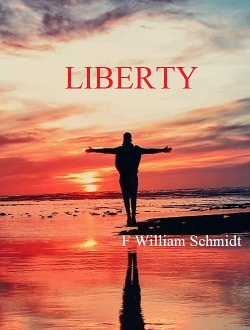
|
26A009 CoPilot and Me by Jim Davies, 3/3/2026 In February, I had a memorable encounter with Artificial Intelligence. I knew already that the "vaccines" produced in a rush for Covid were as bogus as the pandemic itself, and as early as 2020 I'd even invented a vaccine to take their place; the active ingredient is DiHydrogen Monoxide and it's described here. It's no more effective than all the others, but unlike them it's perfectly safe. But I'd come to wonder about vaccines for all the other diseases, several of which were pumped into my bloodstream when too young to protest, and wanted to read what the Anti-Vax people were saying. A regular search revealed a large number of hot and bothered pieces by indignant members of the pharmaceutical trade eager to demean them, but not a single reference to any web site that gave an opposite view. So I resorted to CoPilot, who invites us to "ask anything." I asked for a URL. Now, this AI "person" is scrupulously polite and empathetic, and he said he could tell me all I wanted to know about what anti-vaxxers were saying (and why they are wrong) but he could not refer me to any of their web sites. Naughty me, I asked "why not?" After all, it's a fundamental precept of all scholarship (scientific, historical, theological etc) that if it's available, you must refer to original source material, and not rely on secondary reports. You can read the full conversation here. I pressed that question, and eventually he said because to do so would violate his owner's ethics and rules. "Who?" - Microsoft! Yes, I should have known that. I said Aha, Bill Gates is a well known pusher of vaccines and he won't let you tell me his adversaries' URLs. No, no, he insisted, Bill is long out of MS and it's purely a legal matter; the company is protecting itself from prosecution and/or liability claims, for steering customers to "misleading" info. Wow. They decide it's misleading, so they block it! Mr CoPilot noted "You're right, the logic sounds circular:
- but denied that it applied here. I disagree; it does. So I pointed out that his premise was encapsulating his conclusion, and we moved on. And yes, he admitted that this paradox is a challenge to the whole idea of AI as a disinterested source of all information. This half hour or so up close and personal with AI revealed to me therefore two vital weaknesses in the concept: 1. It's not unbiased. Its owner's wishes influence what it says. 2. Government controls it, ultimately, with its laws and "justice" system. And that is far more sinister yet. When push comes to shove, AI is an immensely powerful and fast source of such info as the rulers permit us peons to learn. All else is "misleading" or "harmful." 
Accordingly, it's a vast, Orwellian "Ministry of Truth" with "truths" sprinting to our screens faster than we can read them, let alone deploy our critical faculties. After the conversation (and lunch) I did some more searching - and discovered a few of the URLs about which CoPilot was so shy. One is Anti-Vaxxer.org, and the other is learntherisk.org which shows the remarkable fact that deaths from all the common diseases that vaccines reputedly prevent were already steeply declining before the jabs were made available! Then over on YouTube there's a very impressive interview with pediatrician Dr Larry Palevsky, about the dangers vaccines bring to newborn babies. Folk interested in that topic will want to visit those, but the main lesson emerging from this encounter is that AI is not the bias-free, disinterested servant of mankind that it may seem to be; it always has an owner, who invested heavily in its development and reasonably expects a return and will not act against his own interests. And for as long as government survives, AI has to operate within the framework of compulsion it sets. That's terrible when we use it to obtain information, but will be infinitely worse if and when AI takes control of human activity, as long anticipated; then, it will be an absolute disaster. Its users can account for the often competing private interests that affect the guidance of AI - we're used to doing that in every market. But the over-arching "interest" of the monopoly called "government" can not be discounted, unless it is removed altogether from human society. Until that is done, AI is a menace.
|
|
||||||||||||||||||||||||||||||||||||||||||||||











